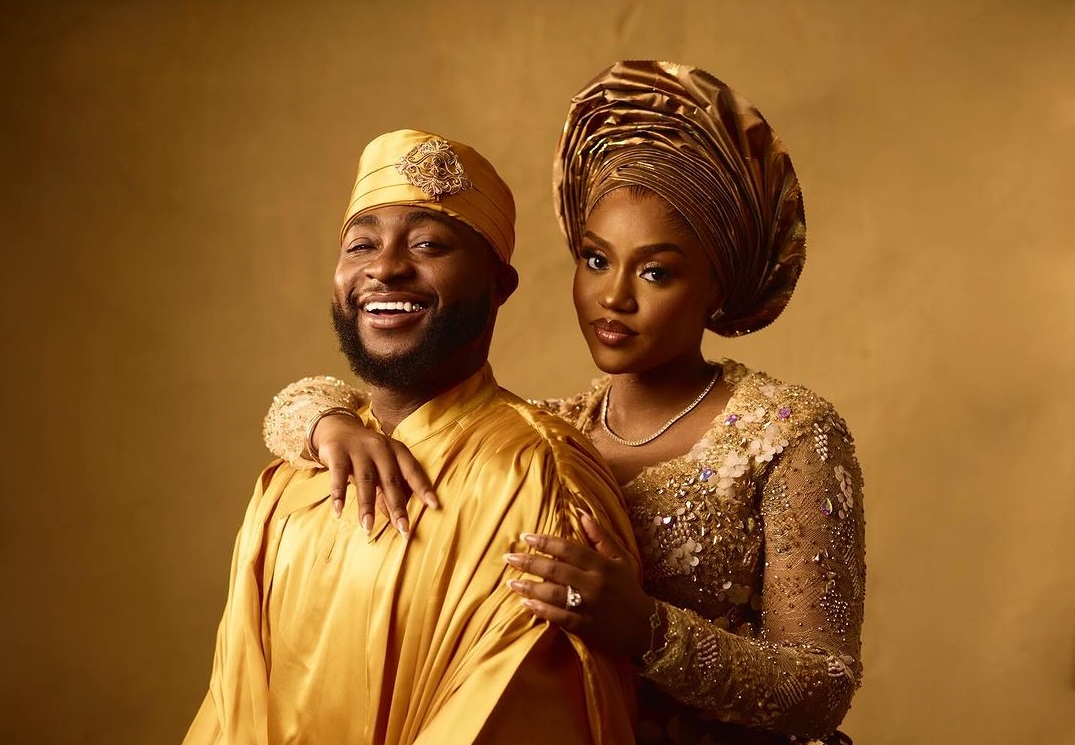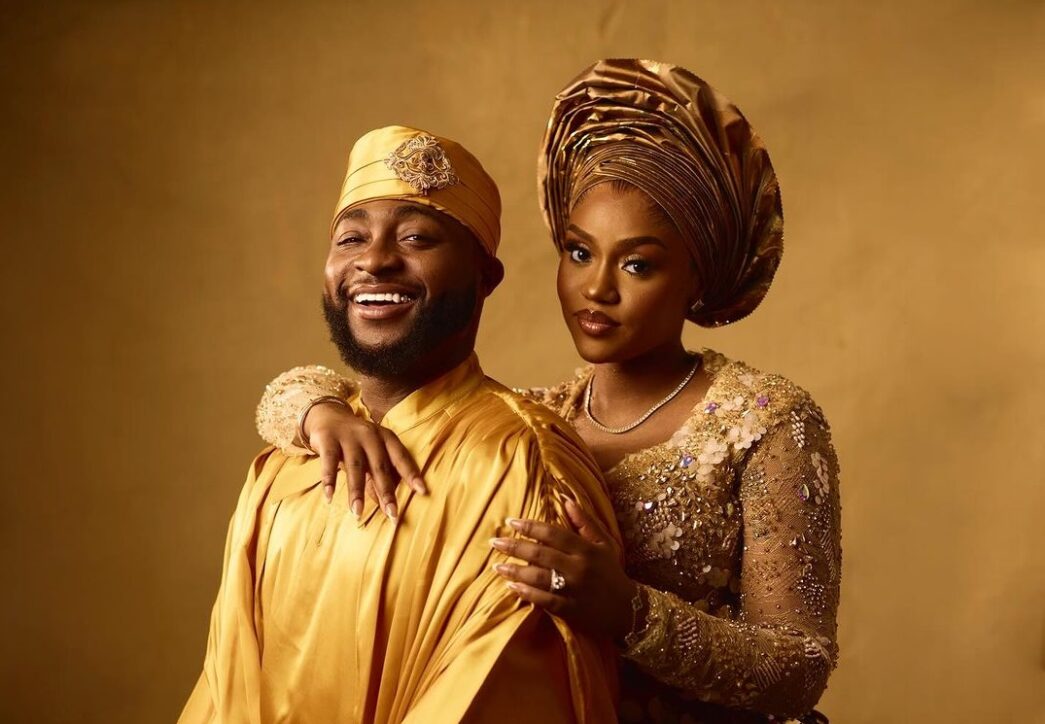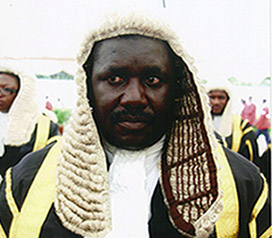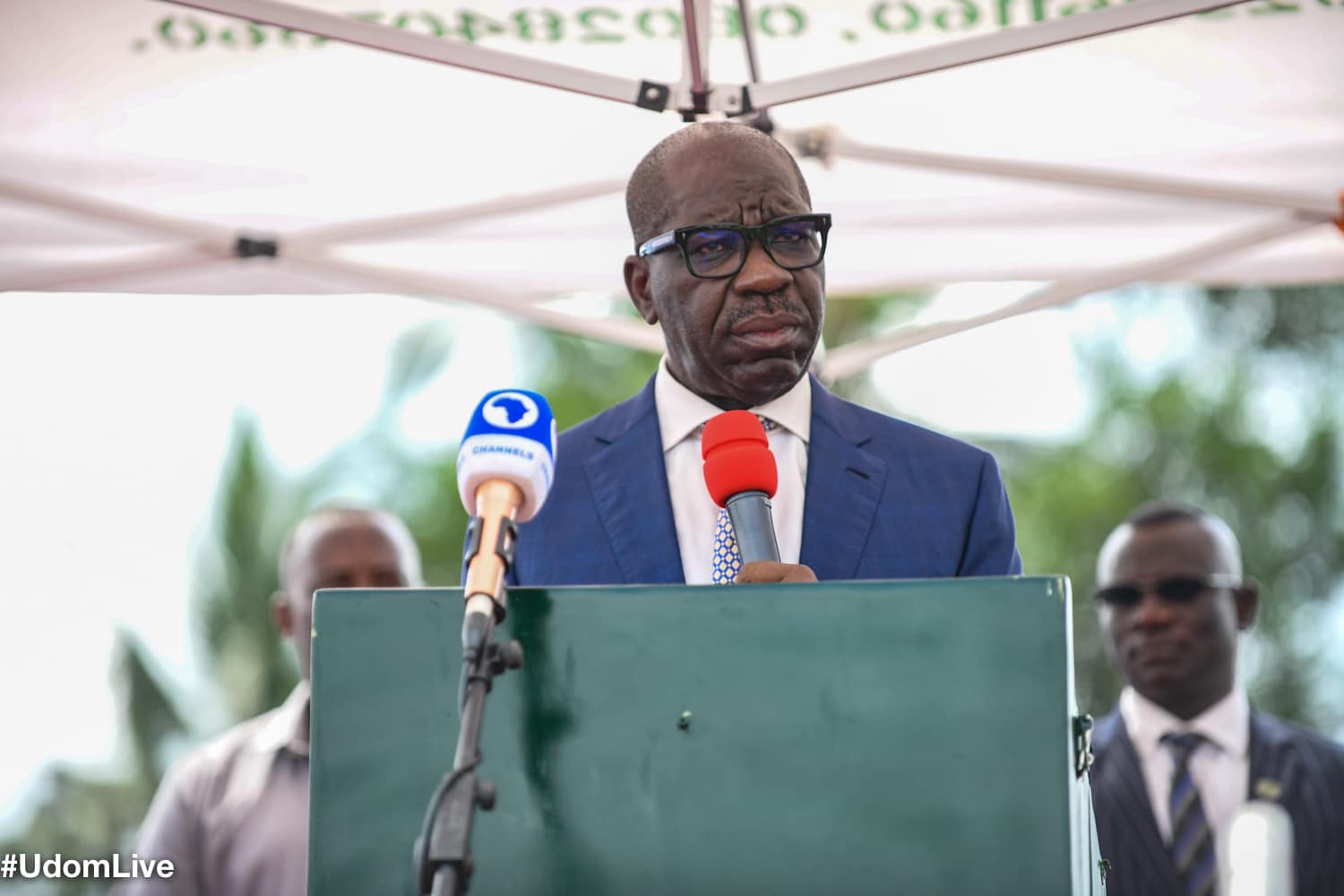Davido
Nigeria of the 1950s and early 1960s had very many interesting personalities. Western Region had its fair share of such. One of them was a man named Suara Sobo Akande (Sobo is pronounced as Sorbor). He was a prominent transporter who held the transportation industry of the time by its jugular. An Ibadan man of the Opo Yeosa clan who lived in an area now known as Ring Road, Suara Sobo was wealthy and had a fleet of lorries in his pool. As a trade logo, Suara Sobo’s lorries always had monkeys chained to their entrance which excited and attracted passengers to them. However, his lorries soon acquired a notorious typecast.
Any passenger who boarded them was literally embarking on a journey that had no certain time or terminal point of disembarkation. They could be arrested for having no particulars by the police. The inappropriate conduct of the drivers and conductors which led to road accidents were equally legendary. The otherwise pleasurable ride, with a monkey on board to marvel at its close resemblance to man, could turn awry for the passenger. It thus became a peculiar refrain in the Western Region to say a man had entered Suara Sobo’s lorry, equivalent to today’s One Chancelingo among youths.
Odolaye Aremu, then Ibadan-based Ilorin-born Dadakuadamusician
Grammy Award nominee, David Adeleke, famously known as Davido, provided Nigerians a veritable escape from themselves last Tuesday. The social media imploded with beautiful photographs of him and Chioma. It was a day to see wealth, plenty and joy in a Nigeria where poverty, lack and anger line our sky. Ash-tagged Chivido2024, the songster and his wife painted the sky red with fascinating ribbons of many colours. No one would know that the wedding was held in the same Nigeria ravaged by the water-borne disease of cholera. The nuptial, decorated with such a lavish show of wealth, was reminiscent of the July 29, 1981, wedding between then Prince Charles and Lady Diana Spencer.
Advertisement
For a moment in the same week, Nigeria provided both counterpoise and semblance to Kenya, its East African Safari destination brother. Whilst Kenyan youths were up in arms against their government for making life miserable for them, Nigerian government runners and youths were enveloped in a Davido wedding that erased class differentials and wiped away hunger optics. You would be pardoned if you thought our bellies were full. A-list guests like Olusegun Obasanjo, the hedonistic king of Ife, governors and the crème-de-la-crème of the Nigerian society were gathered at the wedding’s Victoria Island Harbour Point venue. But the class unity didn’t take too long to evaporate. Immediately its curtains were drawn, the crème-de-la-crème guests left into their wealth, Davido and his wife jetted abroad and the ordinary Nigerians celebrating the nuptials were left sharing Chivido2024
The wedding evoked some symbolisms in Ghanaian Efua T. Sutherland’s 1975 famous play, Marriage of Anansewa. It also put a final imprint on the transition of music and musicians from their perception by traditional Africa as beggars (alágbe). Today, musicians like Davido and Wizkid are mega-millionaires in dollars and mascots. So many Davidos, with greater grits and talent, never saw the light of the day. They were pushed into obscurity by societal stigmatisation. They were typecast as talented scroungers and never-do-wells. For my book, Ayinla Omowura: Life and Times of an Apala Legend(2020), I interviewed the son of Fatai Baiyewumi, the man who murdered Omowura in a bar-room fight in Abeokuta in 1980. He told me that when Omowura began singing in Abeokuta in the 1960s, his father, one of the famous (sànmònrí) of Abeokuta of the time, used to have Ayinla’s ragtag musical ensemble serenade him and his friends while they drank beer in the evenings. He claimed that Ayinla was so poor that the clothes he adorned on the front sleeve of his first musical album were a dash from his father. Late Uncle Charles Ariyibi of Ibadan also told me how, in the 1960s, Ilorin bard, Odolaye Aremu, serenaded his father, in company with his friends, in their Lagos compound. Excited, Ariyibi said, his father dashed the Dadakuada crooner clothes. In many of Odolaye’s songs, he sang of how wealthy fans gifted him clothes.
Ethnomusicology, the study of music of different cultures, revealed that this beggarly perception of musicians was prevalent in several African cultures. Nigeria’s was massive. Musicians in pre and immediate post-colony’s talents were enjoyed but not respected as persons. They were mostly recruited from the world of the rejects of society. Borrowing from aviation lingo, they were the flotsam, jetsam and lagan of society. The musicians themselves acted on this script very handsomely. They were weed smokers and community nuisances, Omo-ita. Yoruba also derogatively labelled them as drummers who sang and got compensated with rivulets of water removed from the top of cornmeal, (alù’lù gb’omi èko). A today musician who represents what they were then is Habeeb Okikiola, a.k.a. Portable. He was just like Omowura, a busboy who engaged in street brawls and other malfeasances. One of Omowura’s band boys was nicknamed Orífó’gò because singing into the night and the band itching to honour another musical engagement, the folk would break bottles on their heads, causing chaos so that the band could escape in the melee.
Advertisement
Haruna Ishola, a big father of the Apala music genre, on the 30th anniversary of his music in the 1970s, sang that, at the beginning of his musical career, most of his colleagues, dissuaded by musicians’ profiling as lazy and who didn’t know it could bring wealth, ran away from the microphone. “Nígbà tí a bèrè l’áyé ojósí, àwon tí ‘ò mò pé isé olà ni nínú wa, ńse ni wón ye’ra ; ìgbà yen ni wón ńp’onílù l’óle…” he sang. Odolaye, in his Ayé Omo Ayé album also pleaded that musicians should not be looked down upon, “e món f’ojú tí ò dáa wò wá mó o!” In later years, Omowura and colleagues tried to stave off their scavenger perception by advertising their turnaround wealth and fame. In one of his live musical engagements, Omowura wore his material accomplishment on his lapel and sang, “You are the same society that calls us musicians beggars wedded to poverty. Our musical craft has however brought us wealth” – “Èyin l’e ńso’pé alágbe kìí l’ówó l’ówó… isé òle l’òle ńje, k’á lù’lù, k’á ko’rin, l’Haádjì Àyìnlá fi l’ówó l’ówó.”
This is why Adedeji Adeleke, Davido’s father, should be the hero of the mascot his son has turned out to be today. A Nigerian businessman and billionaire, Adeleke gave a fillip to his son’s musical talent, regardless of the ancient unflattering typecast of musicians. Other big society barons have also followed suit. Legal czar, Femi Falana’s son, Folarin, known by the stage name Falz, and Florence, a.k.a. DJ Cuppy, daughter of boardroom billionaire Otedola, rank in this regard. In a world that belittles musical talents, one can imagine the initial shame and social pushback these musical talents’ parents must have faced in allowing them to walk the route hitherto trodden by never-do-wells. Today, but for Davido, the mention of Adeleke’s name would have attracted “Adeleke who?” Davido seems to have successfully swallowed whatever name and wealth he owned.
A romantic comedy written in 1975 by Sutherland, a Ghanaian lady playwright who was born in 1924, The Marriage Of Anansewa says a lot, even if nothing, about last week’s Davido marriage. The book is a rehash of the conventional Akan tribe of Ghana’s story-telling. With it, Sutherland successfully wove youthful romance, and humour into greed and cunning to tell the story of a poor and ambitious widower called Ananse who used his beautiful daughter Anansewa as a pawn. A student of Secretarial Studies, Ananse secures rich suitors – Chief-Who-ls-Chief, Chief of Sapaase, Chief of Akate (Togbe Klu IV) and Chief of the Mines – for his daughter, without any of them knowing the other. He then enters a “photograph engagement” between Anansewa and her suitors. Sutherland then showcases how marriage is deployed as a tool for financial exploitation and money-making in African societies.
In Ananse persuading Anansewa to pretend to have died, leading to each chief’s response to her death, Sutherland demonstrates how love conquers mischief, cunning and privations. The suitors’ messengers then came with funeral gifts and condolence messages that spoke to the depth and colour of their love for Anansewa. While the Chief of the Mines regretted that her death forecloses her from bringing up his children, the Chief of Sapa regretted that she could have taken the place of his ‘bitchy, ugly’ wife and Togbe Klu’s happiness would have been for her to deploy her secretarial skills in his business. However, Chief-Who-Is-Chief, who Ananse eventually gives Anansewa to in marriage, bearing heavy gifts for Anansewa through his messengers, regretted that though she was already his wife, he would foot all the finances of her funeral.
Advertisement
Sutherland’s 49-year-old play has a collage of themes that mesh with the Davido wedding. The first theme was that of love. Despite Davido’s highly-talked-about leashless libido, his choice of Chioma among many baby mamas seems to have reigned supreme like the pick of Chief-Who-is-Who among Anansewa’s suitors. Davido, you will recall, has the notorious renown of picking his confetti of baby mamas by the sidewalks like a squirrel picks groundnuts on a plantation. Similarly in Sutherland’s play, before being helped to settle for Chief-Who-is-Who, Anansewa, like Davido, also had multiple liaisons, though she hadn’t met them. The huge material showers the various suitors rained on Anansewa are akin to the benumbing millions of dollars Davido showered at the Lagos wedding.
The Davido wedding and Sutherland’s Marriage of Anansewa, apart from depicting life as drama, also had the theme of African traditional marriage as a tool for financial exploitation and money-making. This has led to, especially Igbo marriages, being a huge burden for every aspiring young man. Only God knows how much material demands Chioma’s Imo State family must have wrung off the well-heeled Adeleke family. While Anansewa’s wedding to Chief-Who-Is-Who was probably held in Ananse’s village, the Davido Igba Nkwu wedding rites violated the traditional wedding code in Igbo society. Such weddings are held in the village of the bride but Chioma’s was held in a ‘No Man’s Land’ of Lagos. The irritant Joe Igbokwe was to later claim it was for fear of ESN and IPOB which afflict Imo State like a pestilence. The unrivalled display of wealth by the Adelekes, at a time when hunger and anger have become stubborn guests that refuse to leave the Nigerian table, draws attention to the postcolonial vice of how we crown wealth as Emperor. It further reveals how materialism is a viper’s poison stinging the marriage institution in Africa.
Sutherland’s craft is an allegory, a symbolism that speaks to the mis-policy of non-alignment adopted by Ghana’s Kwame Nkrumah. It also mocks Nkrumah’s money-centric relations with other countries after independence. While Ananse represents Ghana, the deceptive suitor with the cunning of the notorious trickster Spider in various Ashante folklores, (Spider is represented on the cover of the book) the suitor chiefs symbolise the international community which is a sucker for what it wanted. Notwithstanding that the Davido wedding was a private person’s way of expressing personal joy, accomplishment and social strides, the Harbour Point lavish wedding, like Sutherland’s play, may as well represent the present cunning and Janus faces of leaders of Nigeria and Kenya.
William Ruto clambered to the top of global disdain last week. He had earlier been at the zenith of attention when he became the guest of the American president, Joe Biden in May. In a letter penned to him on May 21, famous literary giant, Ngugi wa Thiongo, labeled Ruto’s diplomatic shuttle to America as cringing for crumbs and lickspittling. Ngugi also asked Ruto if he knew that, while he was enjoying the White House’s hospitality, “Haitians were in the streets demonstrating, calling you a slave.” Literally calling Ruto a betrayer, Ngugi asked him if he knew that he had “chosen to sell your country cheap.”
Advertisement
Like Ruto, Bola Tinubu also came to the presidential palace on the cusp of appealing to the common people. At campaign hustings, Ruto described himself as a “hustler”. He promised to relieve his people of their economic pain. The true test came last week. The tax hike bill waiting for his signature was bound to make life more painful for the offspring of Mau Mau warriors. So they embarked on a protest which, from Nairobi, spread like bushfire in harmattan. The protesters then stormed the parliament and set it on fire. Auma, Barack Obama’s step-sister, and her daughter were tear-gassed in the process. In response, a visibly angry Ruto dispatched soldiers who then littered the streets with bodies of about 20 dead Kenyans. He also initially called the protesters “treasonous” criminals, but, seeing the slant into anarchy and a probable takeover of power from him by the youths, Ruto reversed himself.
Ruto and Tinubu, who are stupendously and fabulously wealthy, subscribe to the obtuse belief that to bail their countries out of economic doldrums, taxation holds the ace. Kenyans mock Ruto in the butt of jokes as “Zakayo,” a word taken out of the biblical tax collector, Zacchaeus’ name. They also believe that his aggressive tax evangelism is a mini-dictatorship. Some even drew parallels between him and Arap Moi, the country’s dictatorial one-party state ruler. While Ruto was campaigning for the Kenyan presidency, just like Tinubu, who promised to make “corn, agbado, casafa” (pun intended) available to the people, Ruto also promised policies that would drop money in Kenyans’ pockets. Not long after being in office, the man who called himself an “anti-establishment” president and a “hustler” removed crucial fuel and maize flour subsidies. He was a Tinubu in the mirror.
Advertisement
As both Ruto and Tinubu, at every drop of a hat, preach belt-tightening, they and their families live in majestic splendour. On his recent visit to Biden, Ruto commuted to and fro in a chartered luxury private jet, abandoning the “old,” presidential jet. It is as though he and Tinubu compare notes in mindless spendthrift-ing. In Nigeria, the chartered jet Tinubu flew to South Africa recently was said to belong to his business friend, Chagoury, the Sani Abacha crony, to who he recently awarded a ₦1.5 trillion highway contract. In Kenya, Ruto also claimed the jet he flew to the US was paid for by his unnamed friends. A few days ago, we were told that, damming the pang and poverty in the land and most likely shouting, “Let Sango, the god of thunder, strike the Bata drum and the jarring metals surrounding it!,” the Lagos Boy began bidding to buy two presidential jets so that he does not get killed in the air, a la Bayo Onanuga. One of the jets is a $600 million (almost a trillion Naira) Airbus A330 aircraft seized from an unnamed Arab prince and businessman. I told you a while ago that Lagos Boys are heartlessly bold and daring. With Ruto and Tinubu, Kenyans and Nigerians may have entered the proverbial Suara Sobo lorry.
Anyway, we must congratulate Davido and Chioma for the joy they exuded on their wedding day. I am however surprised that the older Adeleke family didn’t apprise the talented musician of the eternal essence in a famous Yoruba counsel that teaches circumspection. Yoruba tell merrymakers desirous of flinging cymbals in celebration of achievements to be circumspect like a farmer whose yam plantation yields bountiful. Such a farmer envelopes the heaps from prying eyes with his hands. No matter the glitz of modernity, the Earth, indeed the World, has an eye, apologies to Niyi Osundare. And those eyes are mostly wicked. Like every great achiever, Davido is no doubt surrounded by a grumpy world beefing his supersonic strides.
Advertisement
Odolaye, in the same Aye Omo Aye album, conceptualised the destructive inclination of the world even better. Borne out of the inexplicable tiff that suddenly brewed between him and poet, Oladapo Olatubosun, his record label owner, Odolaye lamented a destructive world he gave the cognomen “Ayé omo ayé, èèyàn abiìdí yàńyàń.”
Of a truth, having gone through marital valleys and spousal challenges, it was Davido’s time to fling the cymbals. However, was an African’s, with its peculiar contours. It wasn’t that of Diana and Charles’ which had over 750 million people around the world watch how Diana, a former nursery school teacher, wore a dress that was said to have 10,000 pearls on it and a 25-foot train. Nor was it that of John and Jackie Kennedy which took place in 1953 in Newport, Rhode Island, with over 800 guests of politicians and diplomats. Nor even that of Kim Kardashian and Kanye West held in 2014 in Florence, Italy, star-studded with guests like Chrissy Teigen, John Legend, Steve McQueen, and Serena Williams in attendance. Most of those weddings ended badly anyway. Davido should have listened to Odolaye’s advice: “This world is wicked. Don’t underrate the wickedness of this world!” (Ayé yìí sòro o, ayé yìí sòro, k’é máse f’ènìyàn se’ré!).
Advertisement
Olajumoke at 80
Tomorrow, one of Providence’s priceless gifts to Ondo State and Nigeria, Bode Olajumoke, will be 80 years old. Born on Saturday, July 1, 1944, Olajumoke was the senator representing Ondo North from 2007 to 2011 and hails from Ose Local Government of the state. In 1999, he aspired to be Nigeria’s president. If Nigerians, especially the people of the Southwest, forget everything about Olajumoke, they will certainly remember the grey-bearded man who birthed the idea of Yoruba unity under the umbrella of the Imeri Unity Group.
Recognising how fractious the Yoruba had been since the demise of Chief Obafemi Awolowo, Olajumoke began a yeoman fence-mending effort which reconciled feuding groups and individuals in Yorubaland. He also redrew the map of his Imeri hometown, a town hitherto mis-contiguously placed under Mid-West and Bendel state, which he fought to bring back to its Ondo kith and kin on September 19, 1991.
The credentials above are almost insignificant when placed side by side with Olajumoke’s philanthropy, unassuming nature and staunch religiosity. All these and far much more are contained in an autobiography he entitled, A Life of Grace: Courage, Vicissitudes and Legacies in the Journey of Bode Olajumokewhich will be unveiled in a birthday ceremony tomorrow at Yoruba Tennis Club, Onikan, Lagos.
Views expressed by contributors are strictly personal and not of TheCable.










